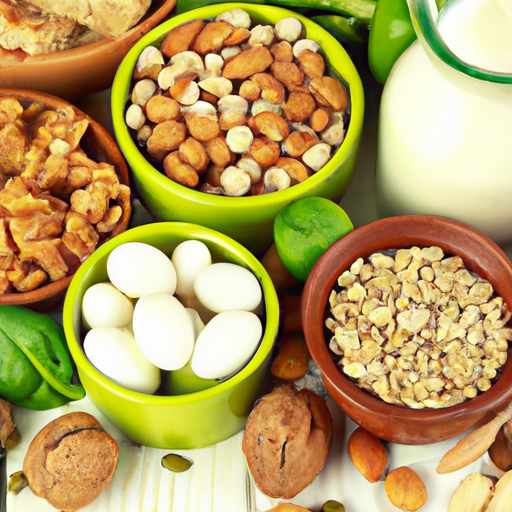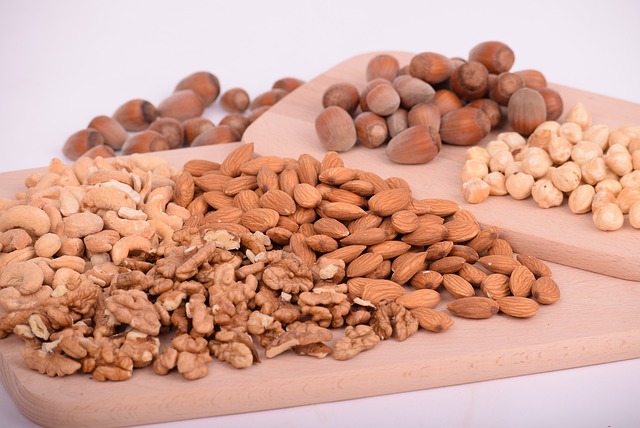Are you considering switching to a vegetarian diet but worried about getting enough protein? Don’t worry, you’re not alone. Many people have concerns about meeting their protein needs without consuming meat. But the good news is that it is absolutely possible to get enough protein on a vegetarian diet. In fact, there are plenty of plant-based protein sources that can easily meet your daily requirements.
When it comes to protein, plants have got your back. While it is true that animal products like meat, eggs, and dairy are high in protein, there are also numerous plant-based foods that are packed with this essential nutrient. Foods like legumes, tofu, tempeh, quinoa, and even certain vegetables like broccoli and spinach are all excellent sources of protein. By incorporating a variety of these foods into your diet, you can easily meet your protein needs without consuming any meat or animal products.
In this article, we will delve deeper into the topic of protein on a vegetarian diet. We will provide you with detailed information on how much protein you actually need, the different types of plant-based protein sources, and how to create well-balanced vegetarian meals that are rich in protein. So, if you’re interested in learning more about how to get enough protein on a vegetarian diet, keep reading! You’ll soon realize that there’s no need to worry about protein when going meatless.
Understanding Protein Requirements
The importance of protein in the diet
Protein is an essential macronutrient that plays a crucial role in various bodily functions. It is responsible for building and repairing tissues, producing enzymes and hormones, and supporting a healthy immune system. Adequate protein intake is important for optimal health and well-being.
Difference between protein needs for vegetarians and non-vegetarians
One misconception about vegetarian diets is that they do not provide enough protein. However, with proper planning and food choices, vegetarians can easily meet their protein needs. While non-vegetarians may obtain protein from animal sources like meat, eggs, and dairy, vegetarians can rely on plant-based protein sources to meet their requirements.
Recommended daily protein intake
The recommended daily protein intake varies depending on factors like age, sex, and activity level. On average, adults are advised to consume about 0.8 grams of protein per kilogram of body weight. However, athletes, pregnant women, and individuals with certain medical conditions may require higher protein intake.
Sources of protein for vegetarians
Vegetarians have a variety of protein-rich options to choose from. Plant-based sources include legumes, pulses, tofu, tempeh, quinoa, dairy products, eggs, nuts, seeds, and vegetables. By incorporating a combination of these foods into their diet, vegetarians can easily meet their protein requirements.
Plant-Based Protein Sources
Legumes and pulses as protein-rich foods
Legumes and pulses are excellent sources of plant-based protein. They include foods like beans, lentils, and chickpeas. These foods not only provide protein but also contain fiber, minerals, and antioxidants. Incorporating legumes and pulses into vegetarian meals can significantly boost protein intake.
Nutrition profile of beans, lentils, and chickpeas
Beans, lentils, and chickpeas are not only high in protein but also provide essential nutrients like iron, zinc, and B vitamins. They are also rich in fiber, which aids in digestion and helps maintain a healthy weight. Adding these legumes to soups, stews, or salads can increase the protein content of vegetarian meals.
Incorporating tofu and tempeh into a vegetarian diet
Tofu and tempeh are popular plant-based protein sources among vegetarians. They are made from soybeans and are rich in protein, iron, and calcium. Tofu has a versatile texture and can be used in stir-fries, salads, or even as a substitute for eggs in baking. Tempeh, on the other hand, has a nutty flavor and can be grilled or used in sandwiches.
Benefits of including quinoa and other grains
Quinoa is a complete protein source, meaning it provides all the essential amino acids that the body needs. Other grains like amaranth and buckwheat are also protein-packed and offer a range of vitamins and minerals. Incorporating these grains into vegetarian meals can help diversify protein sources.
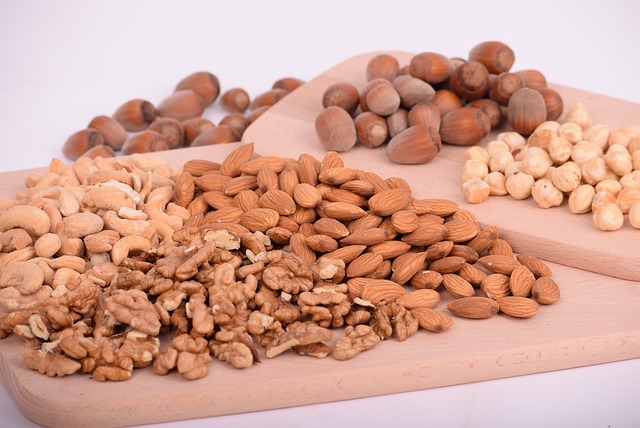
Dairy and Eggs as Protein Options
The protein content of milk and yogurt
Milk and yogurt are excellent sources of protein, especially for lacto-vegetarians who consume dairy products. Both milk and yogurt provide a complete protein profile and are also rich in calcium, vitamin D, and B vitamins. Adding them to smoothies, cereals, or enjoying them as snacks can increase protein intake.
Various types of cheese and their protein content
Cheese is another protein option for lacto-vegetarians. Different types of cheese contain varying amounts of protein. For example, Parmesan cheese has a high protein content, while softer cheeses like mozzarella have a lower protein content. Including cheese in sandwiches, pasta dishes, or salads can contribute to protein intake.
Eggs as a complete protein source
Eggs are a complete protein source that provides all the essential amino acids. They are also rich in nutrients like vitamin B12, choline, and selenium. Consuming eggs as part of a vegetarian diet can significantly contribute to meeting protein needs. They can be enjoyed in various ways, such as omelets, scrambles, or boiled eggs.
How much dairy and eggs to consume for adequate protein intake
To ensure adequate protein intake, lacto-vegetarians can consume recommended servings of dairy products like milk, yogurt, and cheese. These servings can vary but generally range from 2-3 servings per day. Ovo-vegetarians can meanwhile consume eggs as a protein source, with recommended servings depending on individual needs and dietary preferences.
Nuts, Seeds, and their Protein Power
Different types of nuts and their protein content
Nuts are not only delicious but also provide a good amount of protein. Almonds, cashews, walnuts, and peanuts are among the nuts that are rich in protein. They also offer healthy fats, fiber, and other essential nutrients. Snacking on nuts or incorporating them into meals and desserts is a great way to increase protein intake.
Benefits of including seeds in your vegetarian diet
Seeds, like chia seeds, flaxseeds, and hemp seeds, are a powerhouse of nutrition. They are packed with protein, healthy fats, fiber, and various vitamins and minerals. Adding seeds to smoothies, salads, or oatmeal can boost protein intake and provide a wide range of health benefits.
Comparing protein content in various nut butters
Nut butters, such as peanut butter, almond butter, and cashew butter, are popular spreads that offer protein and healthy fats. While the protein content may vary slightly between different types of nut butter, they all provide a decent amount of protein. Using nut butter as a spread, adding it to smoothies, or incorporating it into recipes can increase protein intake.
Incorporating nuts and seeds into meals and snacks
Nuts and seeds can be incorporated into various vegetarian dishes to increase protein content. They can be sprinkled on top of salads, added to stir-fries, or included in homemade granola bars. Snacking on trail mix or enjoying a handful of nuts and seeds as a snack can also contribute to protein intake.
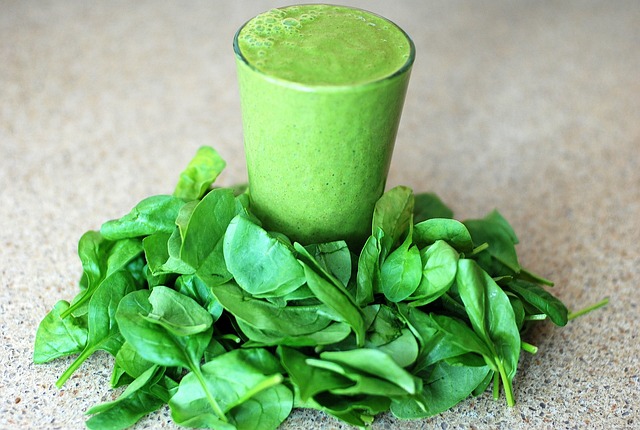
Vegetable Protein Sources
High-protein vegetables like broccoli, spinach, and Brussels sprouts
Certain vegetables are surprisingly high in protein. Broccoli, spinach, Brussels sprouts, and kale are examples of vegetables that provide a good amount of protein. They are also rich in vitamins, minerals, and antioxidants. Including these vegetables in vegetarian meals can add both protein and nutritional value.
Seitan and its exceptional protein content
Seitan, also known as wheat meat or wheat gluten, is a popular meat substitute among vegetarians. It is made from wheat protein and is incredibly high in protein. Seitan is versatile and can be used in various dishes like stir-fries, sandwiches, or kebabs.
The protein content in mushrooms and nutritional yeast
Mushrooms are a great source of protein for vegetarians. While the protein content may not be as high as in legumes or tofu, mushrooms are still a valuable addition to a vegetarian diet. Nutritional yeast is another ingredient that provides protein and adds a cheesy, umami flavor to dishes. Incorporating mushrooms and nutritional yeast into recipes can increase protein intake.
How to prepare and cook vegetable proteins
Vegetable proteins like beans, lentils, seitan, and tofu can be prepared in various ways. They can be boiled, steamed, sautéed, or baked, depending on the desired texture and flavor. Marinating tofu or adding spices and herbs to vegetable proteins can enhance their taste and make them more enjoyable.
Combining Plant-Based Proteins
Understanding complete and incomplete proteins
Complete proteins contain all the essential amino acids that the body needs, while incomplete proteins lack one or more essential amino acids. Vegetarians can ensure they are receiving all the essential amino acids by combining different plant-based protein sources throughout the day.
Complementary protein combinations for vegetarians
Complementary protein combinations are a way to ensure that vegetarians consume all the essential amino acids. For example, combining legumes with grains, such as beans and rice, creates a complete protein profile. Similarly, nuts or seeds can be paired with grains or legumes to boost protein quality in a meal.
Examples of complete protein meals
A vegetarian diet can offer complete protein meals without relying on animal products. For example, a meal consisting of quinoa, black beans, and roasted vegetables provides all the essential amino acids. Veggie stir-fry with tofu or a lentil curry with brown rice are other examples of complete protein meals for vegetarians.
Balancing macronutrients in a vegetarian diet
Protein is just one of the macronutrients that vegetarians need to consider. Balancing protein with carbohydrates and healthy fats is important for overall nutritional balance. Including a variety of fruits, vegetables, whole grains, legumes, nuts, and seeds in the diet can help provide a well-rounded nutrient profile.
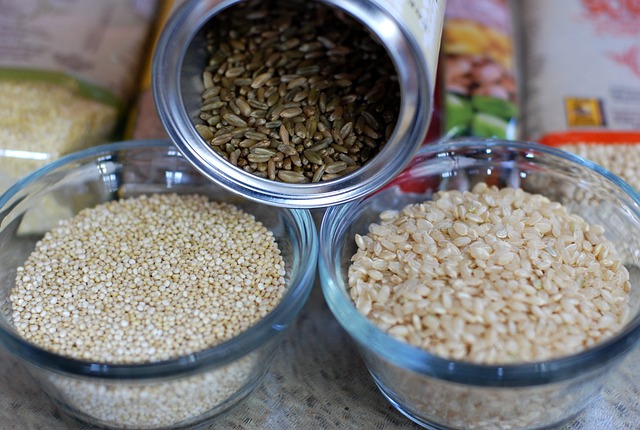
Meeting Protein Needs for Specific Vegetarian Diets
Protein requirements for lacto-vegetarians
Lacto-vegetarians consume dairy products, which are excellent sources of protein. By including recommended servings of milk, yogurt, and cheese in their diet, lacto-vegetarians can easily meet their protein needs. It is important to choose low-fat or non-fat dairy options to keep saturated fat intake in check.
Protein considerations for ovo-vegetarians
Ovo-vegetarians rely on eggs as their primary source of protein. By consuming recommended servings of eggs, ovo-vegetarians can meet their protein requirements. It is advisable to choose organic, free-range eggs whenever possible for improved nutritional quality.
Protein sources for vegans
Vegans follow a plant-based diet and exclude all animal products, including dairy and eggs. Plant-based protein sources like legumes, tofu, tempeh, quinoa, nuts, seeds, and vegetables become even more important for vegans to meet their protein needs. A well-planned vegan diet can easily provide adequate protein intake.
Options for individuals following a plant-based diet
For those following a strictly plant-based diet, it is important to ensure a variety of protein sources to meet their daily requirements. This includes incorporating legumes, tofu, tempeh, quinoa, nuts, seeds, and a range of vegetables into meals. It may also be beneficial to consult a registered dietitian or nutritionist to ensure adequate nutrient intake.
Supplementing Protein Intake
When to consider protein supplements
Protein supplements can be beneficial in certain situations, such as for athletes who have increased protein requirements or individuals with specific medical conditions. It is important to note that supplements should not be seen as a replacement for a well-rounded, balanced diet.
Different types of vegetarian protein powders
Vegetarian protein powders are available in various forms, including pea protein, rice protein, hemp protein, and soy protein. These powders are made from plant sources and can be easily added to smoothies or used in baking to increase protein intake.
The role of protein bars and shakes
Protein bars and shakes can be convenient options for individuals on the go or for those who struggle to meet their protein needs through whole foods. However, it is important to choose options with natural ingredients and minimal added sugars. Reading labels carefully can help avoid unnecessary additives or unhealthy ingredients.
Consulting a professional for personalized advice
If you have specific dietary concerns or require personalized advice, it is advisable to consult with a registered dietitian or nutritionist. They can assess your individual needs and provide guidance on meeting protein requirements through a vegetarian diet.
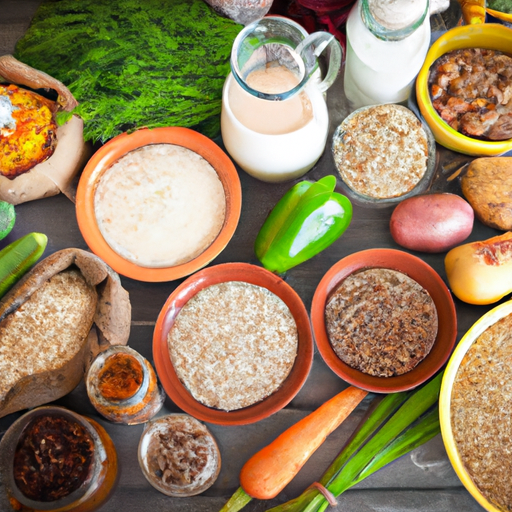
Health Benefits of a Vegetarian Diet
Reduced risk of chronic diseases
Adopting a vegetarian diet has been associated with a reduced risk of chronic diseases such as heart disease, hypertension, type 2 diabetes, and certain types of cancer. A balanced vegetarian diet, rich in plant-based proteins, fiber, and antioxidants, can contribute to overall health and disease prevention.
Improved heart health
Vegetarian diets that prioritize plant-based proteins and healthy fats, like those found in nuts, seeds, and oils, have been shown to improve heart health. These diets can help lower cholesterol levels, reduce blood pressure, and decrease the risk of heart disease.
Potential weight management benefits
Vegetarian diets, when combined with regular physical activity and portion control, can be effective for weight management and promoting a healthy body weight. Plant-based proteins and high-fiber foods help promote satiety and can assist in managing appetite.
Enhancing overall nutrient intake
A well-planned vegetarian diet can provide ample nutrients, including protein, vitamins, minerals, and antioxidants. By focusing on a variety of plant-based foods, vegetarians can ensure they receive a wide range of nutrients that contribute to overall health and well-being.
Conclusion
Can you get enough protein on a vegetarian diet? The answer is a resounding yes! By incorporating a variety of protein-rich plant-based foods like legumes, tofu, tempeh, dairy, eggs, nuts, seeds, and vegetables into your meals, you can easily meet your protein needs. Understanding complete and incomplete proteins, as well as how to combine plant-based proteins, can help ensure that you receive all the essential amino acids. With proper planning and balance, a vegetarian diet can provide all the necessary nutrients, including protein, while offering numerous health benefits. So, don’t worry about getting enough protein on a vegetarian diet – embrace it and enjoy the many delicious and nutritious options available to you. Your health and the planet will thank you!
